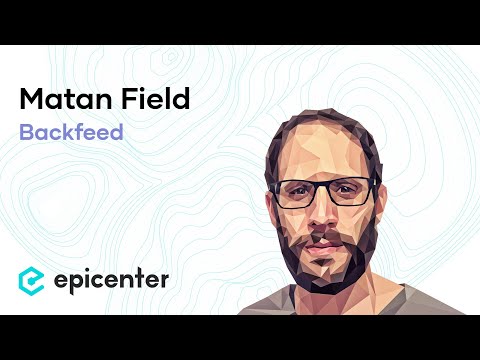Wellbeing
What’s the basis for setting the improvement of wellbeing as primary goal of the economy?
But to answer your question: I think it’s the natural end result of any technology-improving economic activity to lead up to a state of easy optimization of wellbeing. The more and better technologies we have, the better our possibilities to improve our wellbeing by using those technologies become. The faster we develop the technologies we need, the earlier do we arrive at a stage where wellbeing is pretty much trivially obtainable.
So, the key is to optimize the economy for technological progress, because that’s a pretty good proxy for wellbeing. Humans are bad at trying to optimize wellbeing directly, so it’s generally a better strategy to try something else. I think that maximization of technological and social progress is the way to go.
How GeoFlux contributes to that is explained further below when it comes to your third question.
Liberty and Stability
Liberty and stability are supported by an economy that creates a lot of wealth and distributes that wealth relatively equally. As for why GeoFlux should accelerate wealth creation, see my answer to your third question. Now, let’s talk about an equitable distribution of that wealth: This is why there’s a substantial basic income component in GeoFlux. It lets everyone become a shareholder of the GeoFlux economy. So, if things work out fine for the GeoFlux community, everyone profits. This creates an incentive to do your best for the GeoFlux economy, even if that incentive may be relatively small, because it operates on the macro scale, and not so much on the micro scale. A basic income limits the extent of inequality that is possible in that system. It would allow everyone to be relatively free without being subject to political or economic pressures.
Also, the reputation aspect of GeoFlux creates an anti-incentive to do harm to others (at least in a visible way). Anti-social activities may be better punished by a reduction of Prestige (enforced by the public directly), rather than by laws, and a legal and bureaucratic apparatus. This should contribute a lot to stability. I’m not saying that QP and GeoFlux could easily replace the legal system, but that it would make the need for use of the legal system less frequent.
About the need for “economic growth”: Such a need is created by any kind of inflationary money system. Inflation makes it harder to get the same number of goods for a fixed amount of effort. The demurrage system of GeoFlux prevents inflation of the monetary base by eliminating money out of the system, so that the relative scarcity of money is maintained.
Still, I am wary of critiques of “economic growth”, because they usually don’t make a difference between economic growth from expansion, and economic growth from efficiency gains (usually from using better technology). While the first kind of economic growth puts our economic base (our planetary ecosystem) at peril, the latter is nearly universally beneficial.
Open source
The free flow of ideas and innovations encourages the mixing of ideas, so that they generate even better ideas. The more open ideas are spread, the faster the speed of technological (and probably societal) progress. Better technology enables more possibilities to increase our wellbeing, and do that so efficiently that our negative impact on the environment will be minimized, or even becomes negative (for example by doing reforestation via drone swarms).
So, open source ideas and technologies are really the central cornerstone that enable us to reach a better future in a shorter time. How can GeoFlux contribute to that?
Currently, creators of open source ideas and technologies do not have very great ways of generating money with their ideas and technologies, if they should stay open. In a reputation economy, those creators can spread their ideas and technologies out into the world, and get reputation in return. This reputation will generate GeoFlux for them. This enables the creation of for-reputation organisations which can focus only on creating open source stuff (spreading the world about that stuff might still be a necessity, though). The incentives to keep useful knowledge and technology hidden, or unused, will be greatly diminished, because the incentives for doing the opposite will be relatively high. If you release knowledge and technology openly, this will be seen as act very worthy of high reputation.
It will probably take very many years for the reputation economy to scale to all areas of economic activity, but eventually it should be able to get there. The result would be digital abundance. That kind of abundance will accelerate technological and societal progress, which will improve our abilities to do what we really want.




 needs to hit the fan first for that, then that’s the way it is.
needs to hit the fan first for that, then that’s the way it is.

 I really love that way of expressing that idea. I think you’re on to something big. This may tie in to my IEET article
I really love that way of expressing that idea. I think you’re on to something big. This may tie in to my IEET article 
